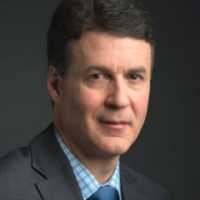
10 Dec DNA Variants Predictive of Autism in Siblings
MedicalResearch.com Interview with:

Dr. Scherer
Dr. Stephen Scherer, PhD, FRSC
Senior Scientist, Genetics & Genome Biology
Director, The Centre for Applied Genomics
SickKids Hospital
Toronto
MedicalResearch.com: What is the background for this study?
Response: One of the most common questions we get from parents with a child with autism is, “what is the likelihood of having a second or third child with autism, and what is the chance others in our family will have kids with autism?”.
To help provide answers to these questions, we started the infant (or baby) siblings study ten years ago. Families having an older sibling with a diagnosis of autism were invited to enroll their next born for assessment and following to see if they also developed autism, and what the likelihood of that happening was. Biological samples like blood, and DNA from blood, were also collected and tested.
MedicalResearch.com: What are the main findings?
Response: 35.8% of younger siblings developed autism. Very careful examination also revealed that another 18% had other developmental challenges similar to those seen in autism, but they did not meet the full criteria for diagnosis. When we tested all of these people’s DNA using a technology called microarrays (the current standard-of-care-test), we found that specific DNA copy number variations (CNVs) were found in 7% of them. These CNVs were predictive for autism or atypical development, presymptomatically, 83% of the time. We have known for a long time CNVs are involved in autism but this is the first study that provides statistics to show the predictive value they can have for presymptomatic diagnosis.
MedicalResearch.com: What should readers take away from your report?
Response: If you have a child with autism they, and any subsequent sibling, should be assessed using the CNV microarray test. If the younger sibling is found to carry a CNV that predicts autism will develop, that child should be monitored closely and enrolled in early intervention protocols as soon as is possible.
MedicalResearch.com: What recommendations do you have for future research as a result of this work?
Response: There are also higher resolution genomic tests called exome or whole genome sequencing that will find addition genetic variants predictive of autism, but right now they are usually only performed in the research realm. It is hoped, and encouraged, that these tests soon become ‘standard-of-care’ because they will likely double the current 7% number (to 14% of families getting information).
MedicalResearch.com: Is there anything else you would like to add?
Response: If you need any clarifications please read this story, it is excellent:
For disclosures, I listed them in the actual scientific paper. I advise companies such as Population Bio and Deep Genomics, and license intellectual property held at The Hospital for Sick Children (SickKids) to some diagnostic companies like Athena Diagnostics and Lineagen, and many of their business models build from developing better and faster ways for diagnosing genetic conditions like autism.
Citation:
D’Abate, L., Walker, S., Yuen, R.K.C. et al. Predictive impact of rare genomic copy number variations in siblings of individuals with autism spectrum disorders. Nat Commun 10, 5519 (2019) doi:10.1038/s41467-019-13380-2
[subscribe]
Last Modified: [last-modified]
The information on MedicalResearch.com is provided for educational purposes only, and is in no way intended to diagnose, cure, or treat any medical or other condition. Always seek the advice of your physician or other qualified health and ask your doctor any questions you may have regarding a medical condition. In addition to all other limitations and disclaimers in this agreement, service provider and its third party providers disclaim any liability or loss in connection with the content provided on this website.
Last Updated on December 10, 2019 by Marie Benz MD FAAD
